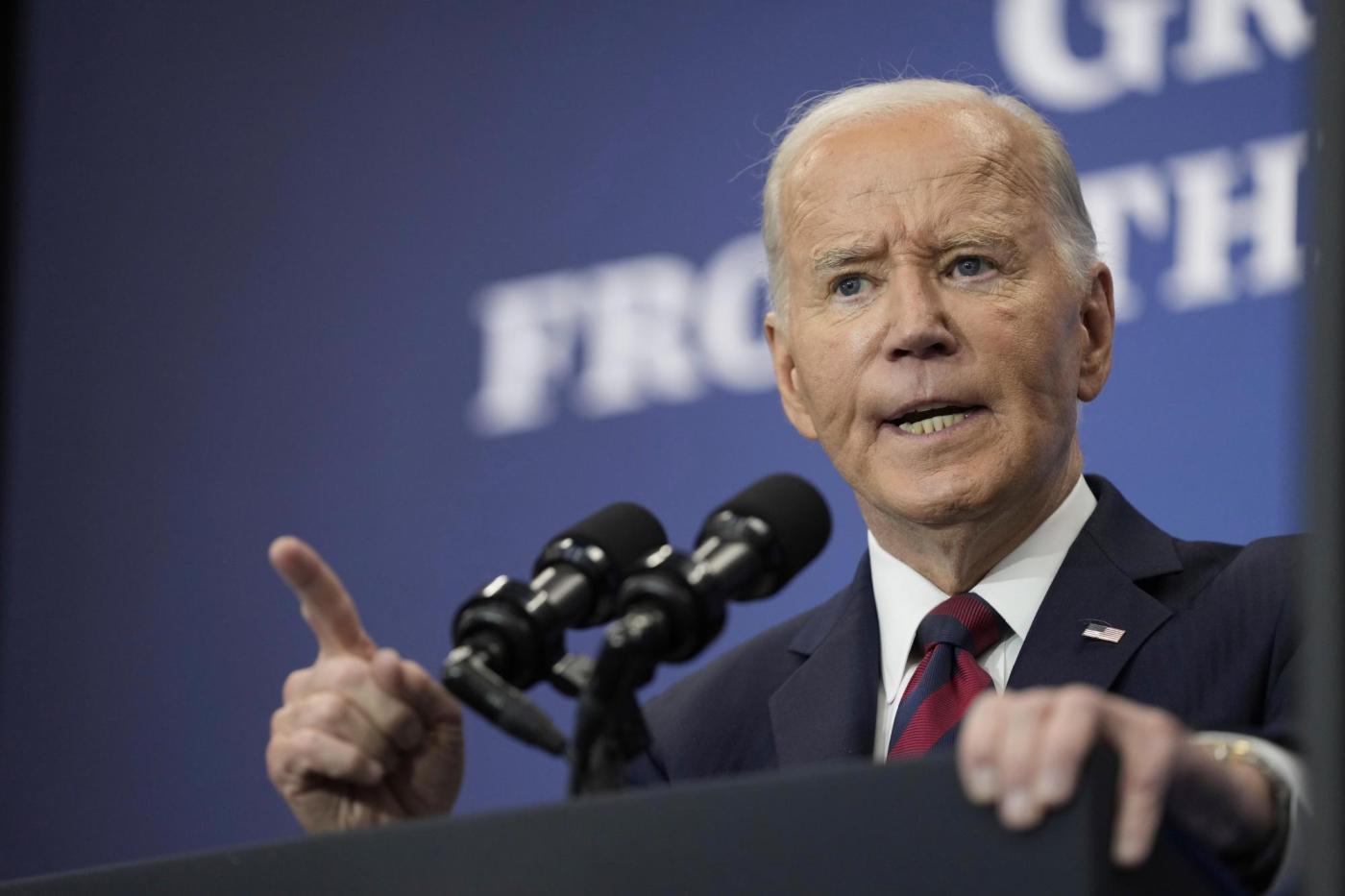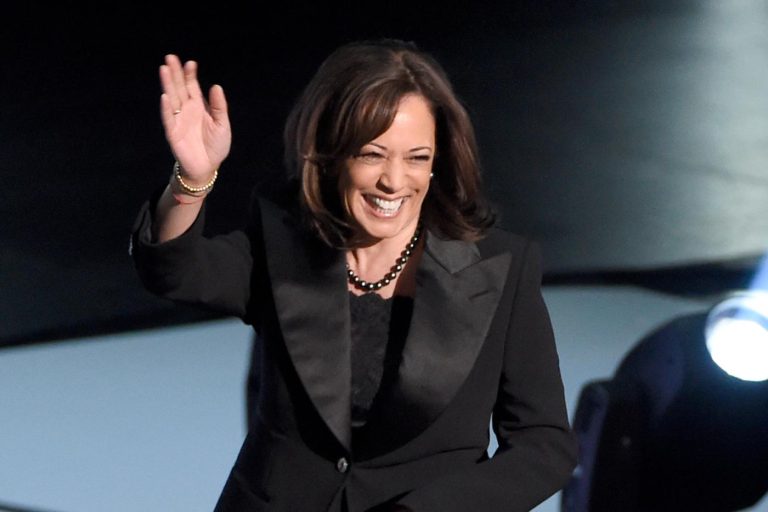By JOSH BOAK
WASHINGTON (AP) — President Joe Biden said Tuesday he was “stupid” not to put his own name on pandemic relief checks in 2021, noting that Donald Trump had done so in 2020 and likely got credit for helping people out through this simple, effective act of branding.
Biden did the second-guessing as he delivered a speech at the Brookings Institution defending his economic record and challenging Trump to preserve Democratic policy ideas when he returns to the White House next month.
Related Articles
Trump taps SF legal firebrand to lead civil rights enforcement
How the FDA allows companies to add secret ingredients to our food
Biden issues veto threat on bill expanding federal judiciary as partisan split emerges
Kimberly Guilfoyle who? Donald Trump Jr. ‘flaunts’ new romance with Palm Beach socialite: report
The Onion’s bid to buy Infowars is still in court
As Biden focused on his legacy with his term ending, he suggested Trump should keep the Democrats’ momentum going and ignore the policies of his allies. The president laid out favorable recent economic data but acknowledged his rare public regret that he had not been more self-promotional in advertising the financial support provided by his administration as the country emerged from the pandemic.
“I signed the American Rescue Plan, the most significant economic recovery package in our history, and also learned something from Donald Trump,” Biden said at the Washington-based think tank. “He signed checks for people for 7,400 bucks … and I didn’t. Stupid.”
The decision by the former reality TV star and real estate developer to add his name to the checks sent by the U.S. Treasury to millions of Americans struggling during the coronavirus marked the first time a president’s name appeared on any IRS payments.
Biden and Vice President Kamala Harris, who replaced him as the Democratic nominee, largely failed to convince the American public of the strength of the economy. The addition of 16 million jobs, funding for infrastructure, new factories and investments in renewable energy were not enough to overcome public exhaustion over inflation, which spiked in 2022 and left many households coping with elevated grocery, gasoline and housing costs.
More than 6 in 10 voters in November’s election described the economy as “poor” or “not so good,” according to AP VoteCast, an extensive survey of the electorate. Trump won nearly 7 in 10 of the voters who felt the economy was in bad shape, paving the way for a second term as president after his 2020 loss to Biden.
Biden used his speech to argue that Trump was inheriting a strong economy that is the envy of the world. The inflation rate fell without a recession that many economists had viewed as inevitable, while the unemployment rate is a healthy 4.2% and applications to start new businesses are at record levels.
Biden called the numbers under his watch “a new set of benchmarks to measure against the next four years.”
“President-elect Trump is receiving the strongest economy in modern history,” said Biden, who warned that Trump’s planned tax cuts could lead to massive deficits or deep spending cuts.
He also said that Trump’s promise of broad tariffs on foreign imports would be a mistake, part of a broader push Tuesday by the administration to warn against Trump’s threatened action. Treasury Secretary Janet Yellen also issued a word of caution about them at a summit of The Wall Street Journal’s CEO Council.
“I think the imposition of broad based tariffs, at least of the type that have been discussed, almost all economists agree this would raise prices on American consumers,” she said.
Biden was also critical of Trump allies who have pushed Project 2025, a policy blueprint from the Heritage Foundation that calls for a complete overhaul of the federal government. Trump has disavowed participation in it, though parts were written by his allies and overlap with his stated views on economics, immigration, education policy and civil rights.
“I pray to God the president-elect throws away Project 2025,” Biden said. “I think it would be an economic disaster.”
Associated Press writer Fatima Hussein in Washington contributed to this report.












